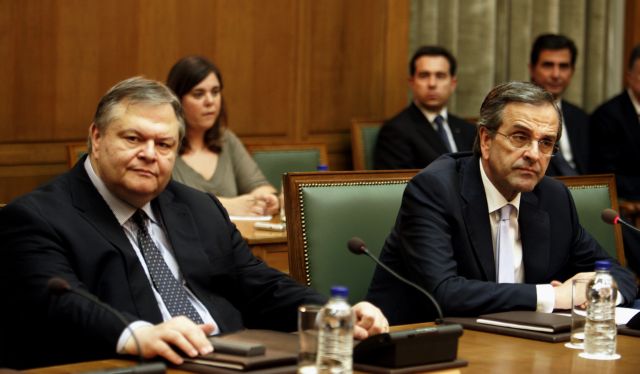The key to the stabilization of the economy, according to the Prime Minister, is the 2014 budget and achieving a primary surplus by implemented everything that has been planned out. The primary surplus though cannot come without a stable political and social environment.
The 2014 budget is critical in determining how Greece will reenter the markets next year, with the Ministry of Finances explaining that a primary surplus is necessary. This marginal surplus, which was estimated to be about 340 million euros, will signify a turn in the economy after four years of bail out plans and a deep recession that has put a strangle hold on the economy.
Political stability is a key issue though, with recently published polls indicating that the Greek people are rather pessimistic about the future. In order to expand the 2.8-billion-euro (1.6% GDP) primary surplus and bring about the marginal (0.6%) growth, further pressure will be put on taxpayers.
In the midst of a deep recession, where unemployment rates continue to and 2.8 billion euros worth of additional taxes already announce, it appears almost absurd for the government to consider even more taxes or new measures. Both New Democracy and PASOK are worried that their coalition government will not last under the social pressure, despite the government’s artificial sense of hope.
With many negotiations with the troika representatives still unresolved (such as the insurance funds), the Prime Minister and Vice President have declared that new measures will be catastrophic. Mr. Samaras’ argument is that the focus on finances, rather than growth strategies, encourages absolutist neo-Nazi ideologies, such as that professed by Golden Dawn, to emerge.
The government appears to have realized that the future of the Greek economy is dependant on growth and recovery measures, rather than further austerity and taxation. Whether or not the country will require further aid remains to be seen, although developments abroad suggest further aid to be inevitable.
On Monday the ECB’s Asmussen and a candidate for the German Ministry of Finances explained that Greece will need further aid if it does not reenter the markets by mid 2014. Even though a return to the markets might lift spirits and conductive towards Mr. Samaras’ efforts, high interest rates could prove to be detrimental in covering the financing gap in the long run.




